Brilliant Corners is a studio album by American jazz musician Thelonious Monk. It was his third album for Riverside Records, and the first, for this label, to include his own compositions. The complex title track required over a dozen takes in the studio, and is considered one of his most difficult compositions.
The album was recorded in three sessions in late 1956 with two different quintets. “Ba-lue Bolivar Ba-lues-Are” and “Pannonica”, on which Monk played the celeste, were recorded on October 9 with saxophonists Ernie Henry and Sonny Rollins, bassist Oscar Pettiford, and drummer Max Roach. The former composition was titled as a phonetic rendering of Monk’s exaggerated pronunciation of “Blue Bolivar Blues”, which referred to the Hotel Bolívar where Pannonica de Koenigswarter resided; Monk had met her during his first trip to Europe in 1954.
On October 15, Monk attempted to record the title track with the same band during a four-hour session. The complexity of the title track became a challenge for Monk’s sidemen, who attempted twenty-five takes, and led to tension between him and Henry, who nearly broke down mentally, and Pettiford, who exchanged harsh words with Monk during the session. Monk tried to make it easier on Henry by not playing during his alto solo. During one of the takes, producer Orrin Keepnews and others in the control room could not hear Pettiford’s playing and checked his bass microphone for a malfunction, but ultimately realized that he was pantomiming his playing. Without a completed single take, Keepnews ultimately pieced together the album version from multiple takes.
On December 7, “Bemsha Swing” was recorded with Paul Chambers on bass and trumpeter Clark Terry, who replaced Henry, and Monk recorded a solo piano version of “I Surrender, Dear”.
According to Down Beat magazine, Brilliant Corners was the most critically acclaimed album of 1957. Nat Hentoff, the magazine’s editor, gave it five stars in a contemporary review and called it “Riverside’s most important modern jazz LP to date.” Jazz writer David H. Rosenthal later called it a “classic” hard bop session. Music critic Robert Christgau said that, along with his 1959 live album Misterioso, Brilliant Corners represents Monk’s artistic peak. In his five-star review of the album, Allmusic’s Lindsay Planer wrote that it “may well be considered the alpha and omega of post-World War II American jazz. No serious jazz collection should be without it.”
In 2003, Brilliant Corners was one of fifty recordings chosen that year by the Library of Congress to be added to the National Recording Registry. It has also been included in the reference book 1001 Albums You Must Hear Before You Die, with reviewer Andrew Gilbert saying it “marked Monk’s return as composer of the first order.” Because of its historical significance the album was inducted into the Grammy Hall of Fame in 1999 (Wikipedia).
“Although Brilliant Corners is Thelonious Monk’s third disc for Riverside, it’s the first on the label to weigh in with such heavy original material. Enthusiasts who become jaded to the idiosyncratic nature of Monk’s playing or his practically arithmetical chord progressions should occasionally revisit Brilliant Corners. There is an inescapable freshness and vitality saturated into every measure of every song. The passage of time makes it all the more difficult to imagine any other musicians bearing the capacity to support Monk with such ironic precision. The assembled quartet for the lion’s share of the sessions included Max Roach (percussion), Sonny Rollins (tenor sax), Oscar Pettiford (bass), and Ernie Henry (alto sax). Although a compromise, the selection of Miles Davis’ bassist, Paul Chambers, and Clark Terry (trumpet) on “Bemsha Swing” reveals what might be considered an accident of ecstasy, as they provide a timeless balance between support and being able to further the cause musically. Likewise, Roach’s timpani interjections supply an off-balanced sonic surrealism while progressing the rhythm in and out of the holes provided by Monk’s jackrabbit leads. It’s easy to write Monk’s ferocity and Forrest Gump-esque ingenuity off as gimmick or quirkiness. What cannot be dismissed is Monk’s ability to translate emotions into the language of music, as in the freedom and abandon he allows through Sonny Rollins’ and Max Roach’s mesmerizing solos in “Brilliant Corners.” The childlike innocence evoked by Monk’s incorporation of the celeste during the achingly beautiful ode “Pannonica” raises the emotional bar several degrees. Perhaps more pointed, however, is the impassioned “I Surrender, Dear” — the only solo performance on the album. Brilliant Corners may well be considered the alpha and omega of post-World War II American jazz. No serious jazz collection should be without it.” – Lindsay Planer.
Track listing:
All tracks written by Thelonious Monk except where noted.
1. “Brilliant Corners” 7:42
2. “Ba-Lue Bolivar Ba-Lues-Are” 13:24
3. “Pannonica” 8:50
4. “I Surrender, Dear” (Harry Barris) 5:25
5. “Bemsha Swing” (Thelonious Monk, Denzil Best) 7:42
Personnel:
Thelonious Monk – piano; celeste on “Pannonica”
Ernie Henry – alto saxophone on “Brilliant Corners”, “Ba-lue Bolivar Ba-lues-are” and “Pannonica”
Sonny Rollins – tenor saxophone
Oscar Pettiford – double bass on “Brilliant Corners”, “Ba-lue Bolivar Ba-lues-are” and “Pannonica”
Max Roach – drums; timpani on “Bemsha Swing”
Clark Terry – trumpet on “Bemsha Swing”
Paul Chambers – double bass on “Bemsha Swing”
Released: 1957
Recorded: October 9, October 15, and December 7, 1956
Length: 42:47
Label: Riverside
Producer: Orrin Keepnews

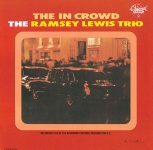

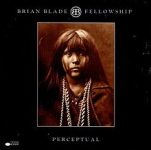
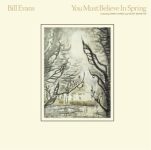
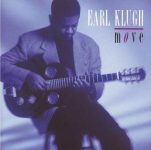
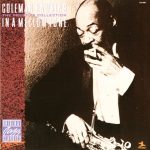

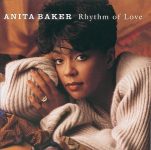
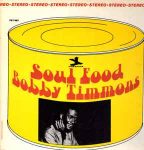
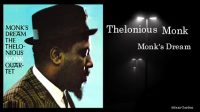
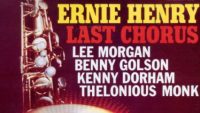
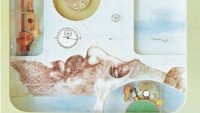
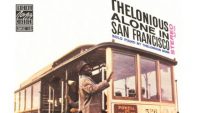


Thanks! Share it with your friends!
Tweet
Share
Pin It
LinkedIn
Google+
Reddit
Tumblr